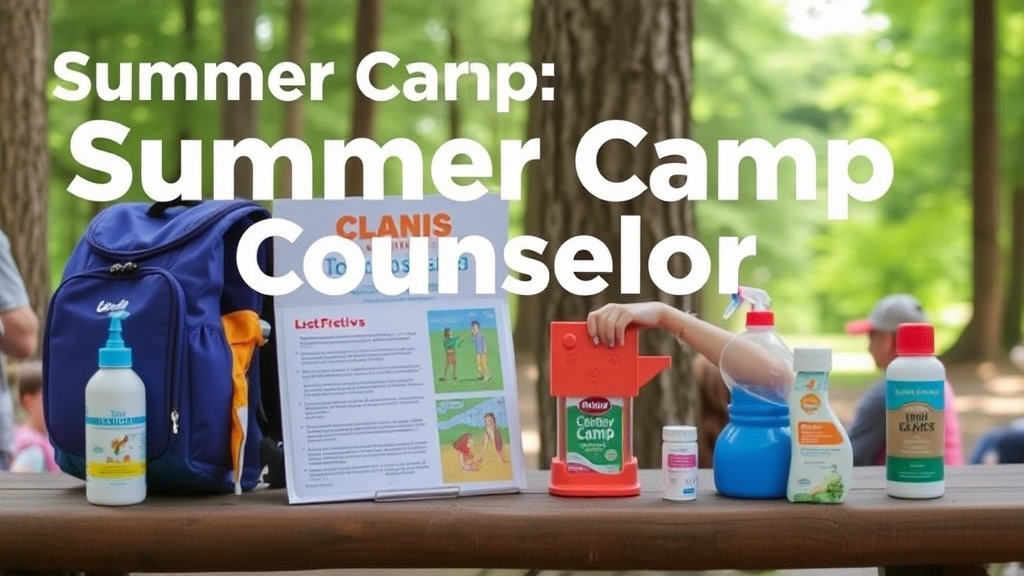Embarking on the Journey
Embarking on the journey to become a summer camp counselor is an exciting adventure, but it comes with its own set of challenges. From packing the right gear to mastering essential skills, there’s a lot to prepare for. In this comprehensive guide, we’ll explore everything you need to know about summer camp counselor essentials, ensuring you’re ready to tackle any situation that comes your way.
What to Pack
We’ll cover the basics of what to pack, including clothing and gear for various activities, must-have personal care items, and crucial documents. We’ll also delve into the key tech gadgets that can enhance your camp experience, essential skills for managing camper groups, and safety precautions to keep everyone healthy and secure.
Building Strong Camper Relationships
Plus, we’ll share strategies for building strong camper relationships and leadership tools to ensure a successful camp season. Let’s dive in and make this summer unforgettable!
Packing Essentials for Camp Counselors
So, you’re gearing up to be a camp counselor, huh? Exciting times ahead! But let’s be realâpacking for camp can feel like a game of Tetris. What do you actually need? What can you leave behind? Let’s break it down.
What Do I Pack as a Camp Counselor?
First things first, packing essentials for camp counselors isn’t just about throwing a bunch of stuff into a suitcase. It’s about being prepared for anything camp life throws at you. Here’s what you absolutely need:
Clothing Essentials
- Comfortable Clothes: Think breathable, quick-dry fabrics. You’ll be moving around a lot.
- Layers: Weather can be unpredictable. Pack a mix of t-shirts, sweatshirts, and a waterproof jacket.
- Footwear: One pair of sturdy hiking boots, a pair of trainers, and flip-flops for the shower.
Gear Must-Haves
- Backpack: A good-quality, durable backpack is a must. You’ll need it for day trips and hikes.
- Water Bottle: Stay hydrated. A reusable water bottle is eco-friendly and essential.
- Sleeping Bag: Make sure it’s rated for the temperatures you’ll be facing.
- Flashlight or Headlamp: Night-time activities or just finding your way to the loo.
Personal Care Items
- Bug Spray: Essential for keeping those pesky insects at bay.
- Sunscreen: Protect your skin. SPF 30 or higher.
- First Aid Kit: A small, personal kit with band-aids, antiseptic wipes, and any personal medications.
Real Talk: What If I Forget Something?
Don’t sweat it. Most camps have a small store or a way for you to get essentials. Plus, you’ll probably make friends who are willing to share. But, it’s always better to be over-prepared than under-prepared.
Pro Tips for Packing Like a Boss
- Use Packing Cubes: These are game-changers for keeping your stuff organised.
- Label Everything: Trust me, things get lost. Put your name on everything.
- Pack a Laundry Bag: Keeps your dirty clothes separate and makes laundry day easier.
A Quick Story
Let me tell you about the time I forgot to pack extra socks. Sounds trivial, right? Wrong. After a surprise rainstorm, my feet were soaked, and I had no dry socks. Lesson learnedâalways pack extra socks.
For more tips on what to bring, check out our 1-week summer camp packing list. And if you’re still deciding on a camp, consider the top summer camps in Greenville County.
Clothing and Gear for Different Camp Activities
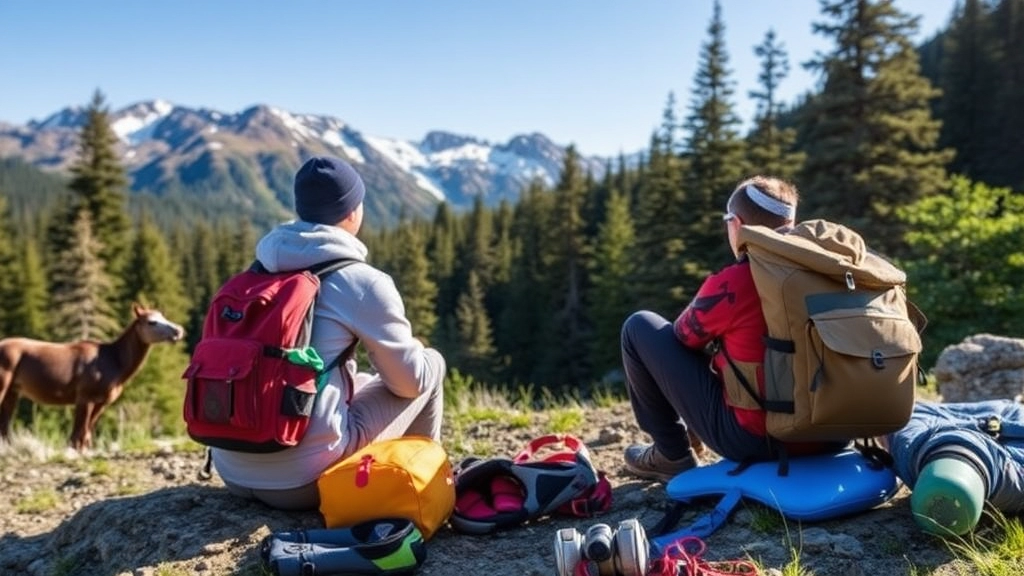
Ever wondered what to pack for camp?
No worries, I’ve got you covered.
As a camp counselor, you need to be ready for anything.
Let’s break it down.
General Clothing Essentials
First off, let’s talk basics.
You’ll need:
- T-shirts: Think comfort and breathability.
- Shorts: Go for quick-dry material.
- Hiking boots: Trust me, your feet will thank you.
- Swimwear: For those spontaneous lake dives.
For Hiking and Outdoor Adventures
Hiking’s a big part of camp life.
Here’s what you need:
- Sturdy hiking boots: Waterproof if possible.
- Moisture-wicking socks: Avoid blisters.
- Lightweight jacket: Weather can be unpredictable.
- Backpack: Small, but big enough for essentials.
For Water Activities
Got water sports on the agenda?
Don’t forget:
- Swim trunks/swimsuits: Quick-dry is key.
- Water shoes: Protect those feet.
- Towel: Microfiber ones dry fast.
For Campfires and Evenings
Evenings can get chilly.
Here’s your evening gear:
- Hoodie or fleece: Keeps you warm.
- Long trousers: Protects against bugs.
- Comfortable shoes: For lounging around the fire.
For Rainy Days
Rain happens.
Be prepared with:
- Rain jacket: Lightweight and waterproof.
- Waterproof trousers: Stay dry head to toe.
- Extra socks: Wet feet are no fun.
Personal Tips
Now, a few personal tips.
Pack a hat and sunglasses for sunny days.
A bandana can be a lifesaver for sweat or as a makeshift mask.
Real Stories
I remember my first camp.
I forgot a rain jacket.
Spent the whole day soaked.
Not fun.
Learn from my mistake.
Must-Have Personal Care Items for Outdoor Environments
Ever found yourself in the middle of the wilderness, realising you’ve forgotten something crucial? Yeah, me too. Let’s dive into the must-have personal care items for outdoor environments that’ll keep you fresh, clean, and ready to tackle whatever the camp throws at you.
Why Personal Care Matters
First off, let’s talk about why these items are non-negotiable. You’re not just out there to have fun; you’re also a role model for the kids. Keeping yourself clean and healthy sets a good example and ensures you’re always on your A-game.
The Essentials List
Here’s a no-nonsense list of personal care items you absolutely need:
- Sunscreen: You’re going to be outside a lot. Protect your skin from harmful UV rays. Look for a broad-spectrum SPF 30 or higher.
- Bug Spray: Mosquitoes and ticks are a real pain. A good insect repellent can save you from itching all night.
- Toothbrush and Toothpaste: Obvious, right? But you’d be surprised how many people forget these. A travel-sized kit should do the trick.
- Biodegradable Soap and Shampoo: You’ll want to stay clean without harming the environment. Look for eco-friendly options.
- Wet Wipes: These are lifesavers for quick clean-ups when you can’t get to a shower.
- Hand Sanitiser: Hygiene is crucial, especially when you’re handling food or first aid.
- Lip Balm with SPF: Your lips can get sunburned too. Keep them protected and moisturised.
- Deodorant: Trust me, you’ll need it. You don’t want to be the smelly counsellor.
- Feminine Hygiene Products: If applicable, pack enough to last the entire camp duration. Better safe than sorry.
- First Aid Kit: A small, personal kit with band-aids, antiseptic wipes, and pain relievers can be a real lifesaver.
Pro Tips for Personal Care
Here’s where we get into the nitty-gritty. These tips will make your life a whole lot easier:
- Pack in Travel Sizes: Save space and weight by opting for travel-sized versions of your essentials.
- Use Multi-Functional Items: A bar of soap that works for both body and hair? Yes, please.
- Stay Organised: Keep everything in a small, waterproof bag. This makes it easy to find what you need quickly.
- Hydrate: Drink plenty of water. Dehydration can sneak up on you and ruin your day.
- Stay Cool: A cooling towel can be a game-changer on hot days. Just wet it, wring it out, and drape it over your neck.
Real Talk: Common Worries
You might be wondering, âWhat if I run out of something?â or âWhat if I forget an essential item?â Here’s the deal:
Important Documents and Paperwork for Camp
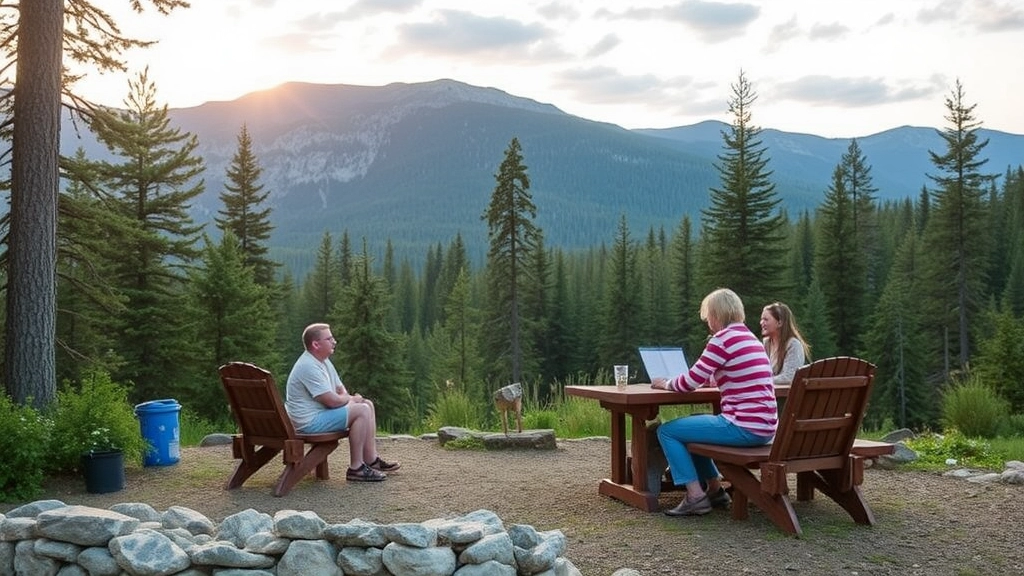
Alright, let’s get real about the important documents and paperwork for camp. I know, paperwork isn’t the most thrilling topic, but trust me, it’s crucial. Imagine turning up at camp ready to dive into the fun, only to find out you missed something vital. Nightmare, right?
What Documents Do You Need?
First off, let’s talk about the basics. Here’s a quick checklist to make sure you’re not caught off guard:
- ID and Proof of Age: A driving licence or passport will do.
- Medical Forms: Any health conditions, allergies, or medications need to be documented.
- Emergency Contact Info: Who should be called if something goes wrong?
- Background Check Clearance: Camps often require this to ensure the safety of all participants.
- Camp-Specific Forms: Each camp has its own set of forms, like liability waivers and consent forms.
Why Are These Documents Important?
Imagine a camper gets injured, and you need to contact their parents. Without the right forms, you’re stuck. Or worse, you can’t participate in certain activities because you didn’t sign a waiver.
Having these documents sorted means:
- Smooth Onboarding: No delays, no hassles.
- Health and Safety: Everyone knows what to do in case of an emergency.
- Peace of Mind: You can focus on having fun and leading your campers.
How to Organise Your Paperwork
Now, let’s talk organisation. You don’t want to be rifling through papers when you need something urgently. Here’s how I keep my documents in check:
- Digital Copies: Scan everything and save it on your phone or cloud storage.
- Physical Copies: Keep a folder with all your paperwork. Label it clearly.
- Emergency Info Card: Have a card with essential info in your pocket at all times.
Real-Life Example
Last summer, I forgot to bring a signed medical form. It was a nightmare trying to get my parents to fax it over while I was in the middle of nowhere. Lesson learned: always double-check your paperwork.
Getting your important documents and paperwork for camp sorted might seem like a chore, but it’s a lifesaver. Trust me, you’ll thank yourself later.
Key Tech Gadgets for a Seamless Camp Experience
Alright, let’s talk tech. As a camp counsellor, you might be wondering, “Do I really need tech gadgets at camp?” The answer is a resounding yes. The right tech can make your life a whole lot easier and enhance the experience for both you and the campers. So, let’s dive into the essential gadgets that will keep your camp experience smooth and stress-free.
Why Tech Matters at Camp
First things first, why should you even bother with tech at camp? Here are some real questions and worries you might have:
- How do I stay organised with all the activities and schedules?
- What if there’s an emergency and I need to contact someone?
- How can I keep the campers engaged and entertained?
These are all valid concerns, and the right tech gadgets can address them efficiently.
Must-Have Tech Gadgets
1. Smartphone
Your smartphone is your Swiss Army knife. It’s not just for calling and texting. It can serve as your:
- Planner: Use apps like Google Calendar to keep track of activities.
- Emergency Contact Tool: Have all important numbers saved and easily accessible.
- Entertainment Hub: Download games and educational apps to keep campers engaged during downtime.
2. Portable Charger
Running out of battery in the middle of the day is a nightmare. A good portable charger ensures your devices are always powered up. Look for one with multiple USB ports so you can charge several devices at once.
3. Walkie-Talkies
Mobile signal can be patchy in the great outdoors. Walkie-talkies are a reliable way to stay in touch with other counsellors and staff. Plus, they’re fun to use!
4. Tablet
A tablet can be a lifesaver. Use it for:
- Presentations: Show educational videos or slideshows.
- Reading: Store e-books and guides.
- Games: Interactive games can be a hit with campers.
5. Action Camera
Capture the magic of camp with an action camera like a GoPro. It’s durable, waterproof, and perfect for recording all those epic moments. Plus, the kids will love seeing themselves in action.
6. Bluetooth Speaker
Music is a great way to set the mood, whether it’s a campfire sing-along or a dance-off. A portable Bluetooth speaker can bring your camp activities to life.
7. GPS Device
If you’re heading out on hikes or excursions, a GPS device is crucial. It ensures you don’t get lost and can find your way back safely.
Real-Life Example
Let me share a quick story. Last summer, I was at a camp where we had a minor emergency. One of the campers had an allergic reaction. Thanks to my smartphone, I quickly contacted the camp nurse and used the GPS to guide us to the nearest medical station. It was a stressful situation, but having the right tech made it manageable.
For more tips on ensuring a smooth camp experience, check out our fun award ideas and our guide on communal shower tips and privacy.
Essential Skills for Managing Camper Groups
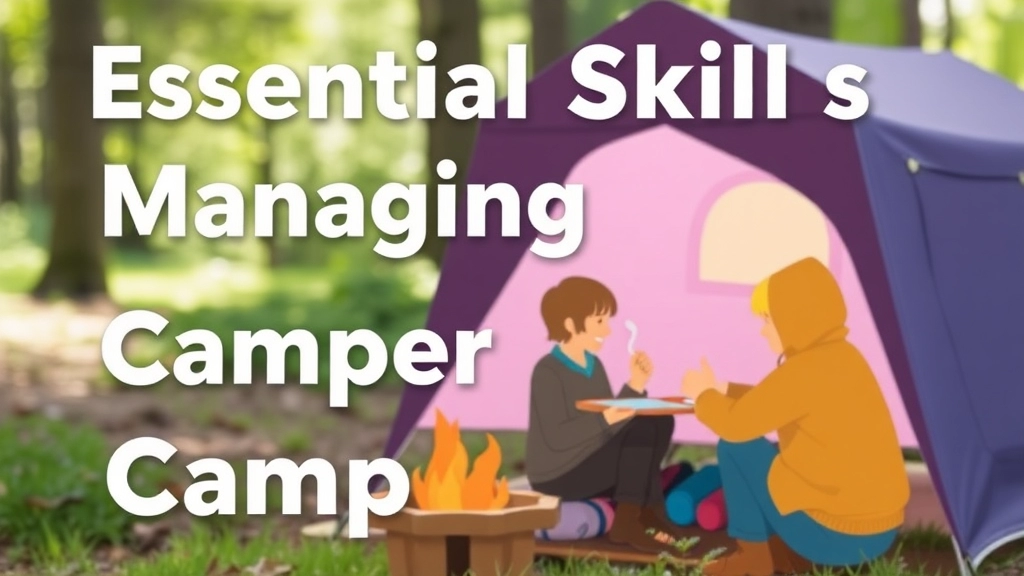
Ever worried about keeping a group of campers in line without losing your cool?
Yeah, me too.
Managing a bunch of energetic kids can be a real challenge.
But don’t sweat it.
I’ve got some solid tips to help you out.
Understanding Group Dynamics
First off, know your group.
Every camper is different.
Some are loud, some are shy.
Understanding these dynamics is key.
Effective Communication
Talk to your campers.
Listen to them.
Use simple language.
Be clear and direct.
Setting Clear Expectations
Set the rules early.
Make sure everyone knows what’s expected.
No surprises.
Conflict Resolution
Conflicts will happen.
Stay calm.
Listen to both sides.
Find a fair solution.
Leading by Example
Be the role model.
Kids mimic what they see.
Show respect and they’ll respect you.
Time Management
Keep activities on schedule.
No one likes waiting around.
Plan ahead.
Positive Reinforcement
Praise good behaviour.
It works wonders.
A simple “good job” can go a long way.
Delegation
Don’t do it all yourself.
Get campers involved.
Give them small tasks.
Flexibility
Plans will change.
Be adaptable.
Go with the flow.
Story Time
I once had a camper who just wouldn’t listen.
Instead of getting frustrated, I asked him to help me with a task.
It gave him responsibility and he thrived.
Quick Tips Recap:
- Know your group
- Communicate clearly
- Set expectations
- Handle conflicts calmly
- Lead by example
- Manage time well
- Use positive reinforcement
- Delegate tasks
- Stay flexible
Managing camper groups isn’t rocket science.
It’s about understanding and adapting.
Remember, you’re there to guide and support.
Safety and Health Precautions to Take as a Counselor
Ever worried about keeping your campers safe and healthy? You’re not alone. As a camp counselor, it’s your job to ensure everyone has a blast without compromising on safety. Let’s dive into the essentials, breaking down what you need to know to keep the camp experience both fun and secure.
Start with First Aid Basics
First things first, first aid knowledge is non-negotiable. Every counselor should be well-versed in basic first aid. Here’s what you need to have down pat:
- CPR Certification: It’s a life-saver, literally. Make sure you’re certified and up-to-date.
- First Aid Kit: Always have a fully stocked first aid kit. Band-aids, antiseptic wipes, tweezers, and gauze pads are just the start.
- Emergency Numbers: Know the local emergency contact numbers and have them easily accessible.
Stay Hydrated and Sun-Safe
Outdoor environments can be brutal, especially in the summer. Hydration and sun protection are key.
- Water Bottles: Encourage campers to drink water regularly. Dehydration can sneak up on you.
- Sunscreen: Apply and reapply. SPF 30 or higher is your friend.
- Shade Breaks: Schedule regular breaks in the shade to cool down.
Know the Terrain
Understanding the camp’s layout and potential hazards is crucial. Here’s what to keep in mind:
- Trail Maps: Familiarise yourself with the camp’s trails and landmarks.
- Hazard Spots: Identify and avoid areas with potential dangers, like steep cliffs or dense forests.
- Buddy System: Always use the buddy system during hikes or water activities. It’s a simple yet effective way to keep everyone accounted for.
Food Safety
Foodborne illnesses are a real buzzkill. Keep everyone healthy with these food safety tips:
- Proper Storage: Store food at the right temperatures to prevent spoilage.
- Hand Washing: Make sure everyone washes their hands before meals.
- Allergy Awareness: Know your campers’ allergies and have an action plan in case of accidental exposure.
Mental Health Matters
Camp isn’t just about physical health. Mental well-being is just as important.
- Open Communication: Create an environment where campers feel safe to express their feelings.
- Stress Relief: Incorporate activities that help reduce stress, like yoga or meditation.
- Counselor Check-ins: Regularly check in with campers to gauge their emotional state.
Be Prepared for Weather Changes
Weather can be unpredictable. Be ready for anything Mother Nature throws your way.
- Rain Gear: Always have ponchos or rain jackets on hand.
- Shelter Plans: Know where to take cover during storms.
- Heat Plans: Have a strategy for extreme heat, like extra water breaks and cooling stations.
Emergency Drills
Practice makes perfect. Regular emergency drills ensure everyone knows what to do in a crisis.
- Fire Drills: Conduct fire drills so everyone knows the evacuation routes.
- Lost Camper Drills: Have a plan in place for locating lost campers quickly and efficiently.
- Medical Emergency Drills: Practice what to do in case of a medical emergency, from contacting help to providing immediate care.
Fun and Functional Items for Enhancing Camp Life
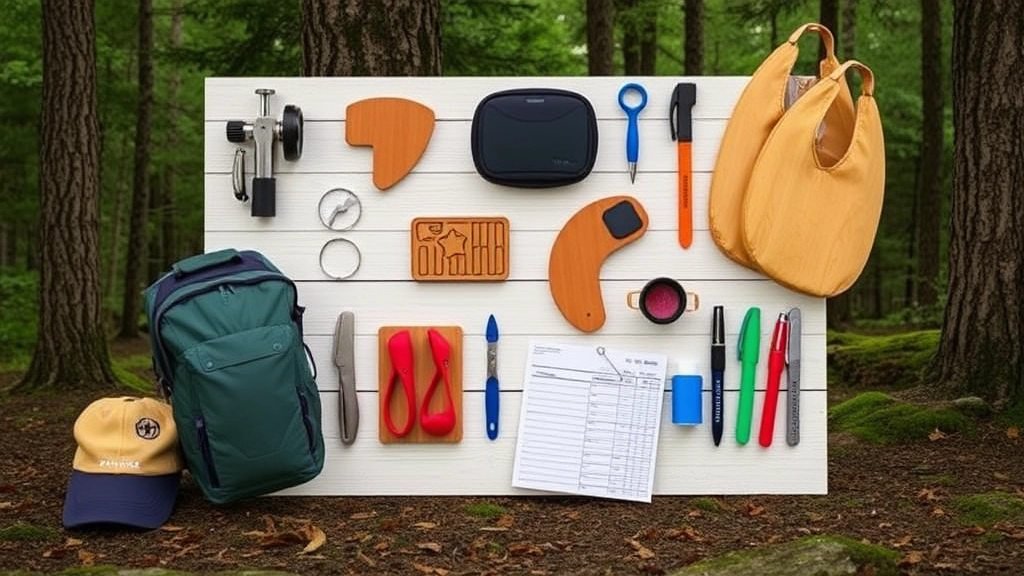
Ever wondered what items can make your camp experience both fun and functional?
Let’s dive in.
Portable Speakers
Who doesn’t love a good jam session? Portable speakers can turn any dull moment into a mini party. They’re perfect for campfires, talent shows, or just hanging out in the cabin.
Waterproof Camera
Capture those epic moments without worrying about water damage. A waterproof camera is a game-changer. It’s not just about the memories; it’s about sharing those memories too.
Games and Sports Equipment
Boredom is the enemy. Pack a variety of games like cards, board games, or even a frisbee. Sports equipment can also be a hit—think footballs, volleyballs, or even a simple skipping rope.
Multi-Tool
A multi-tool is like the Swiss Army knife of camp life. From opening cans to fixing gear, it’s indispensable.
Hammock
Want to relax in style? A portable hammock is your best friend. It’s easy to set up and can be a great spot for reading or napping.
Glow Sticks and Flashlights
Light up the night. Glow sticks are not just fun; they can be really useful for night-time activities. A good flashlight is a must-have for those late-night walks to the loo.
Reusable Water Bottle
Stay hydrated. A reusable water bottle is eco-friendly and essential for any outdoor activity.
First-Aid Kit
Safety first. A small, portable first-aid kit can be a lifesaver. Make sure it’s stocked with essentials like band-aids, antiseptic wipes, and pain relievers.
Snacks and Treats
Food is the way to everyone’s heart. Pack some snacks and treats to keep everyone’s energy up. Think granola bars, trail mix, or even some chocolate for those sweet cravings.
Personalised Items
Add a personal touch. Whether it’s a custom t-shirt, a unique water bottle, or a special hat, personalised items can make camp life more enjoyable.
Example: The Ultimate Campfire Setup
Last summer, I brought a portable speaker, some glow sticks, and a hammock to camp. We had the best campfire nights. The music set the mood, the glow sticks added a magical touch, and the hammock was the perfect spot to relax. Everyone loved it.
Strategies for Building Camper Relationships
How do I connect with my campers? That’s the big question, right? As a camp counselor, building strong relationships with your campers isn’t just a “nice to have”âit’s essential. So, let’s break it down into bite-sized, actionable steps that you can start using from day one.
Start with Genuine Interest
First things first, show genuine interest. Kids can sense when you’re faking it. Ask them about their hobbies, favourite subjects in school, or what they’re excited about at camp. Listen more than you talk. This isn’t just small talk; it’s about laying the groundwork for trust.
Create a Safe Environment
Safety is key. Both physical and emotional safety are non-negotiable. Make it clear from the get-go that bullying, teasing, or exclusion won’t fly in your group. Set the tone by being respectful and kind yourself. Trust me, they’ll follow your lead.
Be Consistent
Consistency builds trust. Stick to your promises and be reliable. If you say you’ll organise a fun activity, make sure it happens. Routine and reliability make campers feel secure and valued.
Use Team-Building Activities
Team-building games and activities are golden. They break the ice and get everyone working together. Think scavenger hunts, relay races, or trust exercises. Get creative and tailor activities to your campers’ interests. For more ideas, check out these summer camp scavenger hunt ideas.
Encourage Open Communication
Open lines of communication are crucial. Let your campers know they can come to you with anythingâwhether they’re having a blast or dealing with an issue. Create an open-door policy and be approachable.
Share Stories and Experiences
Share your own stories. Kids love hearing about your experiences, whether it’s a funny camp mishap or a lesson learned. Relatable stories make you more approachable and human.
Celebrate Achievements
Celebrate the small wins. Whether it’s a camper conquering a fear of heights on the ropes course or simply making a new friend, acknowledge and celebrate these moments. It boosts their confidence and strengthens your bond. For more tips on creating memorable camp experiences, read about the lifetime memories and benefits of summer camp.
Be Patient and Flexible
Patience and flexibility go a long way. Not every camper will warm up to you immediately, and that’s okay. Give them time and adapt your approach as needed. Remember, it’s about them, not you.
Lead by Example
Lead by example. Show enthusiasm, kindness, and respect in everything you do. Your campers will mirror your behaviour. Be the role model they need.
Be Present
Be present in the moment. Put away your phone and give your full attention to your campers. Engaged presence shows you care and are invested in their camp experience.
Leadership Tools and Techniques for a Successful Camp Season
Ever wondered how to lead a group of energetic campers without losing your mind?
Yeah, me too.
Being a camp counselor is a wild ride, but with the right leadership tools and techniques, you can nail it.
Let’s dive in.
Start with Clear Communication
Communication is key.
You’ve got to be crystal clear with your campers and fellow counselors.
Here’s how:
- Daily Briefings: Kick off each day with a quick meeting. Lay out the plan, set expectations, and answer questions.
- Walkie-Talkies: Invest in good walkie-talkies for instant communication. Trust me, they’re lifesavers.
- Visual Aids: Use charts, maps, and schedules. Visuals stick better than words.
Lead by Example
Kids are smart. They’ll mimic what you do, not what you say.
- Be Punctual: Show up on time. Always.
- Stay Positive: Your mood sets the tone. Keep it upbeat.
- Follow Rules: If you break the rules, so will they. Simple as that.
Problem-Solving on the Fly
Things can go south fast at camp.
Be ready to tackle problems head-on.
- Stay Calm: Freaking out helps no one. Keep your cool.
- Quick Decisions: Don’t overthink. Make a call and stick to it.
- Involve the Team: Get input from other counselors. Two heads are better than one.
Foster Team Spirit
A united team is a strong team.
- Team-Building Activities: Plan games and exercises that require teamwork.
- Shared Responsibilities: Rotate tasks so everyone contributes.
- Celebrate Wins: Acknowledge achievements, big or small.
Keep Learning
You’re not perfect. And that’s okay.
- Feedback Sessions: Regularly ask for feedback from campers and staff.
- Training Workshops: Attend leadership training sessions.
- Read Up: There are tons of books and articles on leadership. Dive in.
Real Stories, Real Lessons
Last summer, I had a camper who refused to participate in any activities.
Instead of forcing him, I sat down and had a chat.
Turns out, he was just homesick.
We came up with a plan to ease him into activities, and by the end of the week, he was leading the group. For more tips on handling such situations, check out our guide on why summer camps matter for kids’ growth.
If you’re looking for more ways to engage campers and keep the energy high, don’t miss our top summer camp chants to energize campers.
FAQs on Summer Camp Counselor Essentials
What clothing should I pack for camp?
As a camp counselor, you’ll need a variety of clothing for different activities. Essentials include t-shirts, quick-dry shorts, hiking boots, and swimwear. For specific activities, consider sturdy hiking boots and moisture-wicking socks for hiking, and water shoes for water activities.
What gear do I need for hiking and outdoor adventures?
For hiking, pack waterproof hiking boots, moisture-wicking socks, a lightweight jacket, and a backpack that can hold essentials. These items will help you stay comfortable and prepared for unpredictable weather.
What should I bring for water activities?
For water activities, you’ll need quick-dry swim trunks or swimsuits, water shoes, and a microfiber towel. These items will ensure you stay comfortable and safe while enjoying water sports.
How can I stay warm during campfires and evenings?
Evenings can get chilly, so pack a hoodie or fleece, long trousers to protect against bugs, and comfortable shoes for lounging around the fire.
What should I pack for rainy days?
Be prepared for rain with a lightweight rain jacket, waterproof trousers, and extra socks. Wet feet can be uncomfortable, so having extra socks is essential.
Why are important documents and paperwork crucial for camp?
Having the right documents ensures smooth onboarding, addresses health and safety concerns, and provides peace of mind. Essential documents include ID and proof of age, medical forms, emergency contact info, and background check clearance.
How should I organize my camp paperwork?
To keep your paperwork organized, create digital copies and save them on your phone or cloud storage. Also, keep physical copies in a clearly labeled folder and carry an emergency info card with essential details.
What skills are essential for managing camper groups?
Key skills include understanding group dynamics, effective communication, setting clear expectations, conflict resolution, leading by example, time management, positive reinforcement, delegation, and flexibility. These skills will help you maintain a harmonious and efficient camp environment.
What items can enhance the camp experience?
Fun and functional items include portable speakers for music, a waterproof camera for capturing memories, games and sports equipment to combat boredom, a multi-tool for various tasks, a hammock for relaxation, glow sticks and flashlights for nighttime activities, a reusable water bottle for hydration, a first-aid kit for emergencies, snacks and treats for energy, and personalized items for a personal touch.
Can you give an example of how to enhance camp life?
Last summer, I brought a portable speaker, glow sticks, and a hammock to camp. These items made our campfire nights unforgettable. The music set the mood, the glow sticks added a magical touch, and the hammock was the perfect spot to relax. Everyone loved it.
References
-
Ten Essentials for Outdoor Adventures
-
Backpacking Packing List: What to Bring on a Backpacking Trip
-
Camp Paperwork Checklist

